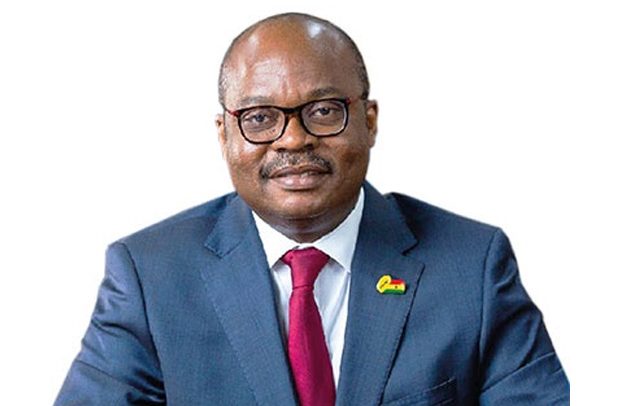Dr Ernest Addison – Governor of BoG
The Bank of Ghana (BoG) has received support from the International Monetary Fund (IMF) regarding its GH¢60 billion ($6.4 billion) loss, as it attributes the loss to the government’s debt exchange program.
The BoG stated that impairments of the government’s security holdings, loans to quasi-governmental and financial institutions, and the depreciation of the local currency contributed to the significant loss.
The IMF has echoed the BoG’s explanation in a statement, clarifying that the loss was incurred due to the Government of Ghana Domestic Debt Exchange Programme.
According to the IMF, the central bank participated in the debt exchange to share the burden placed on government debt holders, including banks, financial institutions, pension funds, and individuals.
While the BoG’s net equity has suffered as a result, the IMF assured that this setback would not hinder the BoG from fulfilling its policy mandates and working towards achieving the inflation target of 8 percent.
The IMF expects the BoG’s net equity to gradually improve over time and return to positive territory.
Additionally, the central bank’s income is anticipated to be sufficient to cover monetary policy operational costs.
The IMF’s statement came in response to frequently asked questions about Ghana’s recent $3 billion bailout approved under the Extended Credit Facility (ECF) arrangement.
The financial assistance aims to help Ghana restore macroeconomic stability, ensure debt sustainability, and pave the way for higher and more inclusive growth.
The program’s objectives are set to achieve these goals by implementing measures to bring public finances onto a sustainable path, including mobilizing more domestic revenue, improving public spending efficiency, and supporting vulnerable populations. Structural reforms will also be carried out in tax policy, revenue administration, public financial management, energy, and cocoa sectors.
Furthermore, efforts will be made to control inflation, maintain financial stability, and attract private investment to stimulate economic growth and job creation. The IMF emphasized that protecting the most vulnerable is a core objective of their programs and highlighted specific initiatives such as doubling the benefits of the existing cash transfer program and increasing resources for key social programs like the National Health Insurance Scheme and the Ghana School Feeding Program.
The IMF acknowledged Ghana’s commitment to transparency and combating corruption.
The Ghanaian authorities have sought IMF technical assistance to conduct a Governance Corruption Diagnostic Assessment and are taking steps to address weaknesses in the asset declaration system for public officials.
Additionally, plans are being developed to enhance professional standards in tax administration.
As Ghana moves forward with its debt restructuring process, authorities are currently finalizing domestic debt restructuring and engaging with official and private creditors for debt relief. The BoG’s participation in the debt exchange program is viewed as a key element in restoring macroeconomic stability and debt sustainability.
Overall, the IMF remains confident in Ghana’s economic program and foresees positive improvements in the BoG’s net equity over time. With ongoing reforms and proactive measures, Ghana is expected to overcome its economic challenges and lay the foundation for a stronger and more inclusive economy.
By Vincent Kubi


